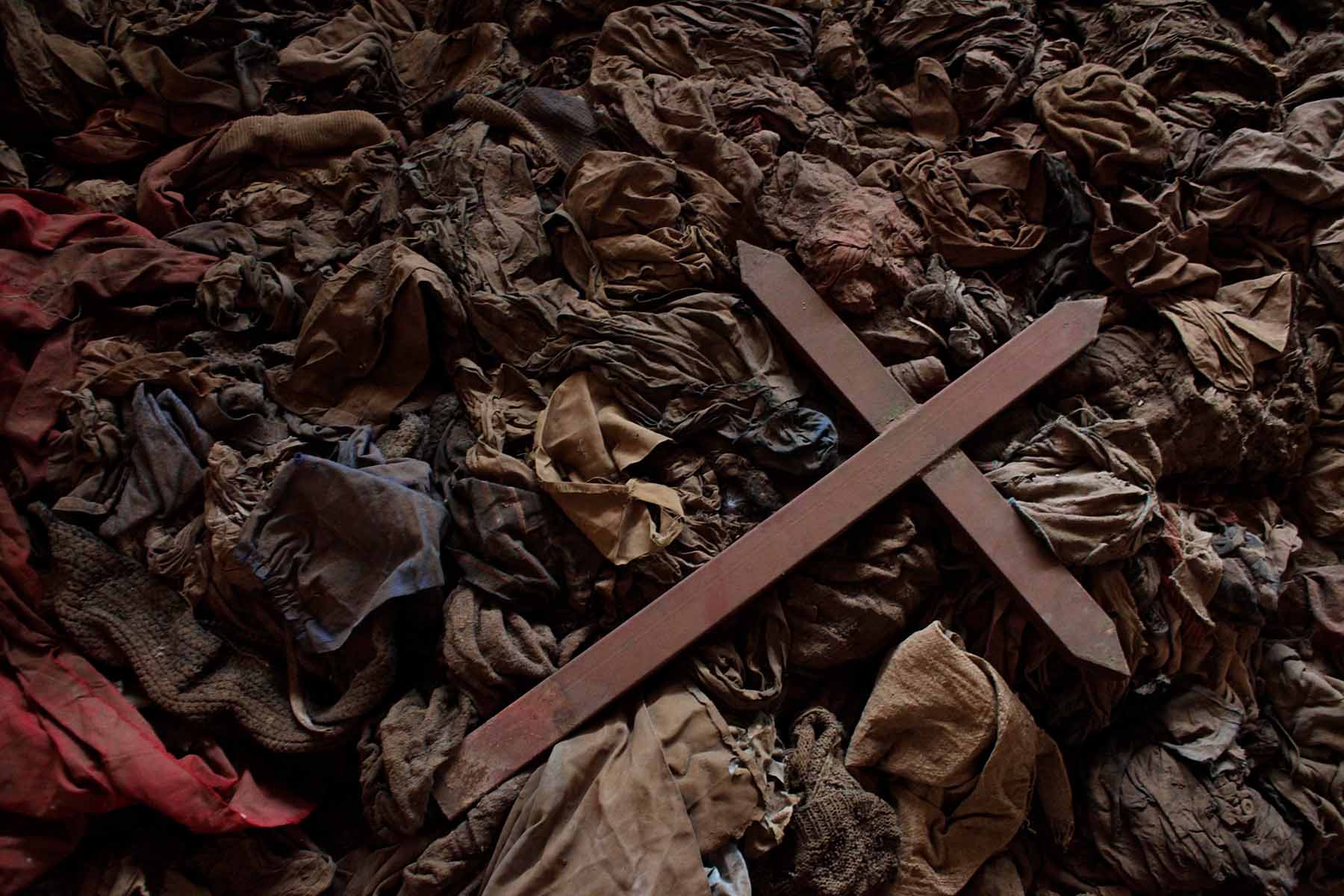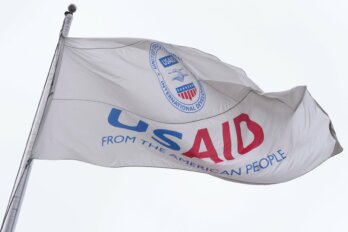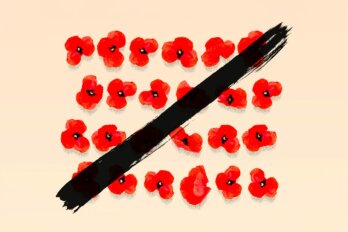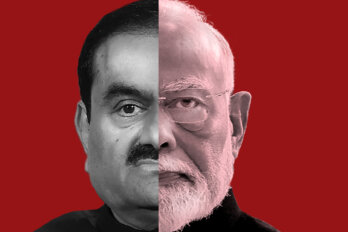In 1993, I had been tasked by the United Nations to lead the implementation of a peace accord in Rwanda between two warring ethnic groups, the Hutus and the Tutsis. A year later, the Rwandan military and Hutu militia began their slaughter of the Tutsi minority. In the first days of the killings, a number of nations sent reconnaissance parties to assess the situation. At the debriefings, one member told me, “General, we’re going to recommend that no one get involved in this complicated mess. It may only be tribal and it may not last too long.” Another said, “You know, there’s nothing here for us. No strategic resources. The only thing here is people, and there are too many of them anyway.”
It was not until six weeks later, with half a million massacred bodies strewn across the world’s TV screens, that the UN Security Council finally agreed to call this “complicated mess” a genocide and approved a 5,000-troop reinforcement. I needed those troops, adequately trained and well supplied, as soon as I could get them, and only the big and middle powers could make that happen. They didn’t. No one came until the killing stopped. The genocide was over in July. The first troops hit the ground in August. They were from Ethiopia, where a civil war had just ended; they arrived with no background in how to handle a peace agreement within the context of a UN structure. They didn’t have ammunition. Or radios. Or supplies. It was too late anyway.
As a career soldier, I had thought I knew something about bureaucracy and believed I was ready to figure out and circumvent the UN version of it. I was wrong. The institution that had enacted the Genocide Convention could not rouse its member nations to deliver vital supplies, weapons, vehicles, and logistics in time to intervene. That left me and a skeletal force, along with a small group of brave NGOs, missionaries, and journalists, screaming into the void.
Why did no one come? Because there was “nothing there.” In my many dark moments, I have raged that if Rwanda’s 350 mountain gorillas had been at risk, I would have received more support from the international community than I had with a million human lives on the line. Instead, I heard versions of this comment, over and over: “We just need to step back and let them slaughter each other for a few weeks, and then go in and pick up the pieces.” Then French president François Mitterrand himself had been quoted by Le Figaro in 1988 as saying, “In countries like that, genocide is not too important.”
Further evidence of disinterest from the West was the inadequate resources provided to my original peacekeeping mission. Anyone engaged enough to look at the violent tensions in Rwanda and the steady flow of weapons into the country at the time should have been able to see that the only real hope for peace was to deploy a strong, credible international force empowered with a mandate to prevent violence. Any agreement between two parties separated by so much mistrust needed a competent and capable referee. This was certainly obvious to me and my staff within weeks of arriving in Rwanda, so it should have been obvious to anyone who’d had more time on the ground and better sources of information—namely, France, Belgium, and the other foreign powers involved in the peace process.
True, the initial stages of the genocide were hidden by the general chaos on the ground, and at first, every newsroom, embassy, and government was overwhelmed with conflicting and confusing reports. But the speed with which French and Belgian paratroopers arrived to evacuate expatriates suggests, in fact, that they had been ready for some kind of explosion and had contingency plans in place well in advance. They took the warning signs seriously enough to save their own people but not to do something for the millions of Rwandans at risk of violence.
I heard over and over that member nations were loath to send troops because the recent deaths of US troops in Mogadishu—a sixteen-hour street battle that left eighteen American soldiers dead—had destroyed the public’s faith and interest in peacekeeping. Yet, between 1992 and 1996, the international community sent tens of thousands of peacekeeping troops into former Yugoslavia to prevent “ethnic cleansing.” In fact, more people were raped, killed, and displaced in Rwanda in three months than during four years of war in Bosnia. The clear message: Black Africans were less important, less precious, less deserving of assistance and sacrifice than other human beings. This was both disinterest and hypocrisy writ large. Of course, it shouldn’t have been so surprising to me: during the colonial era, native populations and entire ethnic groups were wiped out by European nations at the same time that those nations were supporting human rights reforms at home.
The world had decided which people count and which don’t. That grotesque pecking order of humanity, laid bare during the 1990s, still operates today. And it seems to me as vicious in intent and impact as it ever was in the colonial era. While the causes of most African conflicts run deep and are difficult to tease apart—though responsibility rests heavily on the colonial powers—the roots of disinterest in helping to end those conflicts are relatively simple to name: politics and racism. The politics of self-interest keep certain countries, conflicts, and people included in world policies and media. Racism keeps Africa out.
The lack of empathy from the international community and the international media to the monumental violence in Rwanda shocked me to my core. I suppose I had an exaggerated notion of the power of public opinion to restrain bad actors. And an underappreciation of the world’s readiness to accept mass atrocities as a “normal” part of African politics.
Although Africa had been the object of a colonial-era scramble for control of land and natural resources, as well as the scene of Cold War struggles, by the end of the 1980s, it had largely been abandoned to its post-colonial and post–Cold War fate. Intracontinental massacres were expected (and tolerated) as power vacuums left by the departing colonizers were filled; under the guise of gaining new freedoms, post-colonial countries in Africa were set adrift to deal with the still-raw wounds of colonialism. The breakup of the Soviet Union was creating a multitude of other problems that absorbed bandwidth and resources. And many national armies in the West were already overcommitted to coalition-based operations and UN peacekeeping missions around the globe as a wave of instability swept over countries that in the Cold War had been stabilized both economically and politically by one or the other major power bloc.
To most outside observers at the time, Africa was a scene of general social and economic collapse, heightened by deadly famines, civil wars, and mass atrocities. Western and Northern countries considered Africa a continent to be pitied, not a source of potential; it was certainly not a priority.
The international community’s inaction in Rwanda was infernal, but it’s also enlightening to break that down to the role that individual member states played.
The historical record makes it very clear that, for domestic reasons, the Americans wanted to be seen to be independent of the UN Security Council. Where once the United States had taken pride in leading the UN, headquartered as it is in New York City, by 1993, the country had turned against the UN for what they saw as its unwarranted interference with American sovereignty. To demonstrate that he could stand up to the UN, President Bill Clinton withheld funding, particularly from peacekeeping missions. American delegates to the UN actively blocked support for the United Nations Assistance Mission for Rwanda and argued in favour of shutting it down after the genocide began. China was not yet involved in UN peacekeeping, and Russia was busy dealing with its internal turmoil following the collapse of the Soviet Union. The UK played its usual post-empire game of holding its cards close to its chest; with embassies in Nairobi, Kampala, and Dar es Salaam, as well as with their close ties to the Americans, the British clearly had a great deal of intel in the lead-up to the genocide, yet they shared nothing. (Given the country’s egregious history of colonization, this silence seemed particularly appalling.) Belgium was in a complicated position because of its colonial past in Rwanda, and it did not have a seat on the Security Council.
More locally, Burundi was preoccupied with its own factional disputes; Zaire was falling apart under President Mobutu Sese Seko; Tanzania was concerned enough to attempt to resolve frictions in the area but was generally ignored. There were four impoverished African nations that would send me troops, but no wealthy country was willing to provide them with equipment and weapons, or food, or transport to get them to me. Apparently, there were fears that if they equipped these battalions, the troops would take that equipment back to their own countries, where they would use it to conduct coups. It was appalling, treating these African nations like undisciplined children who couldn’t be trusted. Compare that with how the international community is trusting Ukrainians to use the tanks, guns, communications systems, and bombs we are supplying them with today.
In the background was domestic pressure within stable nations to reap a “peace dividend” from the end of the Cold War, meaning a significant reduction in defence spending. In 1991, the first Gulf War had demonstrated the capacity of a US-led coalition to confront the national army of a “rogue state.” This contributed to a dangerous level of confidence that the military powers of the West could join forces to meet significant threats to the resources that mattered to them—a sign of the “new world order” US president George H. W. Bush had heralded.
But when faced with the reality of failing nations such as Somalia, no one knew what to do. American blood spilled in Mogadishu prompted an entirely new US foreign policy articulated by Clinton in his Presidential Decision Directive 25 of March 1994: the United States would commit troops to an international engagement only if it saw an advantage for American interests.
Another layer to this disinterest was (and very much still is) the West’s growing fascination with itself. Even in the era before smartphones and social media, we had already demonstrated an unhealthy fixation on celebrity and a focus on what was happening close to home. My own experience of returning from Rwanda in 1994 to a continent absorbed by the O. J. Simpson trial illustrated just how effectively our media had learned to feed us what they think we want rather than what we might need to know. That old saying from the 1960s had become reality: “If you don’t mind, it don’t matter.”
Genocide should matter. We should mind. But no nation—not even my own country of Canada—wanted to provide us with the resources to stop the bloodbath. Apparently, some humans are simply not worthy of protection under the human rights conventions that evolved in the richer nations of the Global North and which are supposed to be applied universally. Indifference had sealed Rwanda’s fate long before we tried to save it.
Adapted from The Peace: A Warrior’s Journey by Roméo Dallaire with Jessica Dee Humphreys. To be published on April 3, 2024 by Random House Canada, an imprint of Penguin Random House Canada. Copyright © 2024 Roméo Dallaire. Reprinted with permission of the publisher.




